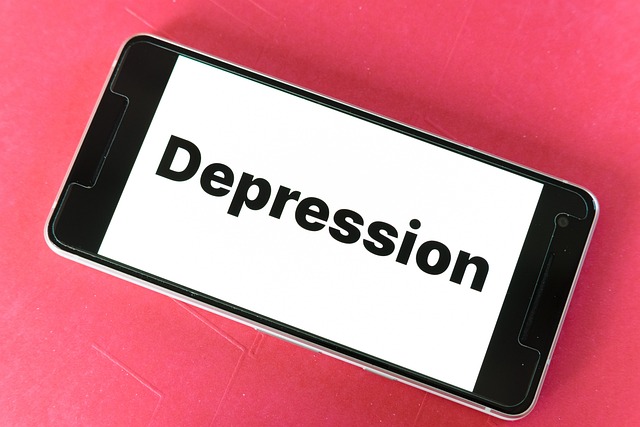Depression, a complex mental health issue, is effectively managed through therapy with trained depression therapists. These professionals employ evidence-based strategies like CBT, IPT, and MBCT to address negative thought patterns, interpersonal issues, and prevent relapses. Building a strong therapeutic alliance is key, fostering open communication and personalized care. Therapy combines talking therapies with lifestyle changes, including structured routines, exercise, and mindfulness techniques. Overcoming client resistance and maintaining motivation are challenges met through trust-building, education, and active participation. Ongoing support from depression therapists, social connections, and self-care practices lead to lasting recovery and improved well-being.
Depression is a prevalent mental health condition affecting millions, yet its management often involves a complex journey. This article guides you through various aspects of navigating depression therapy. From understanding the impact of depression and the critical role of skilled depression therapists to exploring different therapeutic approaches and strategies for personal growth. Learn about building a strong therapeutic alliance, coping techniques, and overcoming challenges on this path to recovery. Discover resources that promote well-being beyond therapy sessions.
Understanding Depression and Its Impact

Depression is a complex mental health condition that significantly impacts an individual’s daily life and overall well-being. It goes beyond mere sadness or temporary blues; it is characterized by persistent feelings of deep melancholy, loss of interest in activities once enjoyed, changes in appetite and sleep patterns, fatigue, and difficulty concentrating. These symptoms can vary in intensity and duration but often interfere with a person’s ability to function normally.
Seeking help from depression therapists is a proactive step towards managing this condition. These professionals are trained to provide support, guidance, and evidence-based strategies to help individuals understand and cope with their symptoms. Through therapy, individuals can develop resilience, learn healthy coping mechanisms, and work towards improving their overall mental health and quality of life.
The Role of Depression Therapists in Treatment

Depression therapists play a pivotal role in managing and treating this common mental health disorder. They are trained professionals equipped with various therapeutic techniques to assist individuals in navigating their depression. Through one-on-one sessions, these specialists create a safe and supportive environment, fostering open communication and encouraging clients to explore the underlying causes of their condition.
The expertise of depression therapists lies in tailoring treatments to individual needs. Using evidence-based methods such as cognitive-behavioural therapy (CBT), they help patients challenge negative thought patterns, develop coping strategies, and gradually rebuild a sense of well-being. By providing guidance, education, and emotional support, these professionals empower individuals to take control of their mental health journey and work towards lasting recovery.
Types of Therapy for Effective Depression Management

Depression management therapy offers a range of approaches tailored to individual needs, with various types of therapy proven effective in treating depressive disorders. Cognitive Behavioral Therapy (CBT) is a widely recognized and powerful tool, focusing on identifying and changing negative thought patterns and behaviors. This type of therapy helps individuals challenge and reframe distorted thinking, leading to improved mood and coping strategies.
Another popular method is Interpersonal Therapy (IPT), which emphasizes the relationship between people and their surroundings. IPT targets interpersonal issues, such as conflict or loneliness, that may contribute to depression. By improving communication skills and enhancing social support networks, this therapy helps individuals navigate challenging relationships and gain a sense of belonging. Additionally, Mindfulness-Based Cognitive Therapy (MBCT) combines CBT with mindfulness practices to prevent depressive relapses, teaching individuals to stay present and non-judgmental in the face of negative thoughts and emotions.
Creating a Therapeutic Alliance with Your Therapist

Building a strong therapeutic alliance is crucial in managing depression, as it forms the foundation for effective treatment. When you begin therapy with a depression therapist, it’s essential to foster an open and honest relationship. This means sharing your feelings, thoughts, and experiences freely while also actively listening to your therapist’s insights and guidance. The alliance is a collaborative partnership where both parties work together towards shared goals of improving mental well-being and overcoming challenges related to depression.
A supportive and trusting bond with your therapist encourages you to explore sensitive topics and engage in meaningful conversations. This alliance allows for personalized treatment, tailored to your unique needs. It involves effective communication, mutual respect, and a safe space where you can express yourself without fear of judgment, fostering a positive environment conducive to healing and growth.
Coping Strategies and Lifestyle Changes

Depression management therapy involves more than just talking to a therapist; it encompasses a holistic approach that includes coping strategies and lifestyle changes. Depression therapists often recommend maintaining a structured routine, engaging in regular physical activity, and adopting healthy eating habits as part of the treatment plan. These lifestyle adjustments can significantly impact mood regulation and overall well-being.
Additionally, stress management techniques like mindfulness meditation, deep breathing exercises, and progressive muscle relaxation are valuable tools taught by depression therapists. Encouraging social connections and participating in activities that bring joy or a sense of accomplishment can also be powerful coping strategies. Depression therapists help individuals navigate these practices, tailoring them to personal needs for effective depression management.
Common Challenges in Depression Therapy and How to Overcome Them

Depression therapy involves navigating through a web of challenges, but with the right strategies, these can be overcome. One significant hurdle is depression therapists often face is resistance from clients due to stigma associated with mental health issues. Overcoming this requires building trust and fostering an environment where individuals feel safe to express their feelings without fear of judgment. Educating clients about depression, its causes, and the benefits of therapy can help dispel misconceptions.
Another common challenge is maintaining motivation throughout the therapeutic process. Depression therapists should employ techniques that encourage active participation, such as setting achievable goals, providing regular feedback, and incorporating diverse therapeutic approaches tailored to individual needs. Regular check-ins, both during sessions and between them, can also help sustain momentum and ensure clients stay on track with their recovery journey.
Resources and Support for Continuous Well-being

Depression management often requires ongoing support and resources for continuous well-being. Beyond initial therapy, connecting with a network of supportive individuals can make a significant difference. This might include joining support groups where individuals share similar experiences and offer mutual understanding and encouragement. Online forums and communities dedicated to mental health can also provide access to valuable information, practical coping strategies, and a sense of belonging. Additionally, maintaining open communication with trusted friends and family members allows for emotional support and helps prevent feelings of isolation.
Complementing therapy with self-care practices is another vital aspect. Engaging in regular physical activity, practicing mindfulness or meditation, adopting healthy sleep habits, and cultivating hobbies or interests can all contribute to improved mood and overall resilience. Access to a variety of depression therapists specializing in different approaches—such as cognitive behavioral therapy (CBT), interpersonal therapy, or psychodynamic therapy—ensures individuals can find the best fit for their unique needs and preferences in their journey towards lasting well-being.
